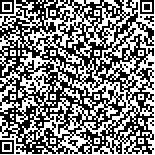| 引用本文: |
张雨辰,许明,刘琼,胡碧浓,唐丽亚,艾坤,张泓.电针对骶上脊髓损伤大鼠急性期肾及下尿路功能的影响[J].湖南中医药大学学报,2023,43(3):512-518[点击复制] |
|
| |
|
|
| 本文已被:浏览 3138次 下载 1448次 |
| 电针对骶上脊髓损伤大鼠急性期肾及下尿路功能的影响 |
| 张雨辰,许明,刘琼,胡碧浓,唐丽亚,艾坤,张泓 |
| (湖南中医药大学针灸推拿与康复学院, 湖南 长沙 410208) |
| 摘要: |
| 目的 通过观察电针对急性期骶上脊髓损伤(suprasacral cord injury, SSCI)后逼尿肌-括约肌协同失调(detrusor sphincter dyscoordination, DSD)大鼠膀胱最大容量(maximum cystometric capacity, MCC)、漏尿点压力(leakage point pressure, LPP)、血清尿素氮(blood urea nitrogen, BUN)、血肌酐(serum creatinine, SCR)和肾组织形态学的改变,探讨电针治疗在SSCI急性期对上、下尿路功能(膀胱功能和肾功能)的影响。方法 36只SD雌性大鼠,随机抽取12只作为空白组,剩余24只采用改良Hassan Shaker脊髓横断法在T10脊髓节段全横断制作SSCI大鼠模型,成模后随机分为模型组和电针组,每组12只。电针组取“次髎”“中极”“三阴交”穴予持续电针刺激40 min,1次/d,连续治疗7 d;空白组与模型组只捆绑不治疗。采用膀胱造瘘法进行尿流动力学检测;随后腹主动脉采血,通过SCR、BUN检测评估肾功能;处死大鼠后取肾行HE染色,观察其组织形态结构的变化。结果 与空白组比,模型组大鼠MCC、LPP、BUN和SCR均显著升高(P<0.01);电针组大鼠MCC、BUN和SCR显著低于模型组(P<0.01),高于空白组(P<0.05或P<0.01);电针组大鼠LPP显著低于模型组(P<0.01),较空白组差异无统计学意义(P>0.05)。与模型组相比,电针组大鼠肾皮质炎性细胞浸润减轻、胞质空泡化减少,皮质部集合小管和肾小管上皮细胞核固缩减轻,肾小管坏死减少。结论 电针治疗可能通过降低SSCI后DSD大鼠MCC和LPP以改善肾脏微血管血流,发挥对肾功能和肾脏结构的保护作用。电针穴位可能刺激骶神经、胫神经的神经传入,促进尿道外括约肌爆发恢复,并且通过调节交感、副交感神经传出而影响排尿效率。 |
| 关键词: 骶上脊髓损伤 逼尿肌-括约肌协同失调 尿道外括约肌爆发模式 膀胱顺应性 上尿路损伤 肾脏微血管血流 肾功能 |
| DOI:10.3969/j.issn.1674-070X.2023.03.020 |
| 投稿时间:2022-07-04 |
| 基金项目:国家自然科学基金面上项目(81874510);国家自然科学基金青年项目(82205255);湖南省自然科学基金青年项目(82019JJ50437,2022JJ40312);湖南省大学生创新创业训练计划项目(S202110541019);湖南省教育厅科研项目(20C1432)。 |
|
| Effects of electroacupuncture on renal and lower urinary tract function of rats in the acute stage of suprasacral spinal cord injury |
| ZHANG Yuchen,XU Ming,LIU Qiong,HU Binong,TANG Liya,AI Kun,ZHANG Hong |
| (College of Acupuncture & Tuina and Rehabilitation, Hunan University of Chinese Medicine, Changsha, Hunan 410208, China) |
| Abstract: |
| Objective To investigate the effects of electroacupuncture on upper and lower urinary tract function (bladder function and renal function) in the acute stage of suprasacral cord injury (SSCI), by observing the changes of maximum cystometric capacity (MCC), leakage point pressure (LPP), blood urea nitrogen (BUN), serum creatinine (SCR) and renal histopathology in rats with detrusor sphincter dyscoordination (DSD) after SSCI. Methods There were 36 SD female rats, 12 of which were randomly selected as control group. The remaining 24 rats were made into SSCI models by modified Hassan Shaker spinal cord transection at T10 segment, which were randomized into model group and electroacupuncture group, with 12 rats in each. In electroacupuncture group, points of Ciliao (BL32), Zhongji (CV3) and Sanyinjiao (SP6) were subjected to continuous electroacupuncture stimulation for 40 min, once per day, for consecutive 7 d; control group and model group were only bound without any treatment. The urodynamic test was performed by cystostomy. Then, blood samples were collected from the abdominal aortas, and SCR and BUN were detected to evaluate the renal function. After the rats were sacrificed, the kidneys were stained with HE to observe the changes of histomorphology and structural injury. Results Compared with control group, MCC, LPP, BUN and SCR in model group significantly increased (P<0.01). MCC, BUN and SCR in the electroacupuncture group were significantly lower than those in the model group (P<0.01), but higher than those in the control group (P<0.05 or P<0.01). LPP of the electroacupuncture group was significantly lower than that of the model group (P<0.01), but there was no statistical significance compared with the control group (P>0.05). Compared with the model group, the inflammatory cell infiltration and cytoplasmic vacuolation of the renal cortex were reduced, karyopyknosis of the epithelia of the collecting tubules and renal tubules were improved and the renal tubule necrosis decreased in electroacupuncture group. Conclusion Electroacupuncture may reduce MCC and LPP of DSD rats after SSCI to improve renal microvascular blood flow and play a protective role in renal function and renal structure. It may promote the recovery of external urethral sphincter bursting activity by stimulating the afference of the sacral and tibial nerves through the selected points, and affect the efficiency of urination by regulating the efference of the sympathetic and parasympathetic nerves. |
| Key words: suprasacral cord injury detrusor sphincter dyscoordination external urethral sphincter bursting activity bladder compliance upper urinary tract injury renal microvascular blood flow renal function |
|

二维码(扫一下试试看!) |
|
|
|
|




